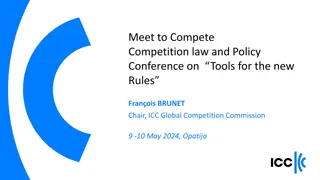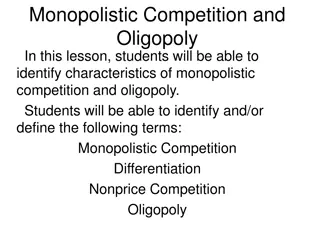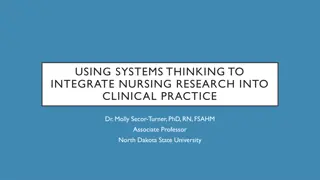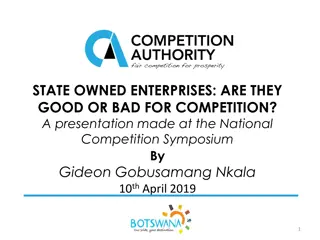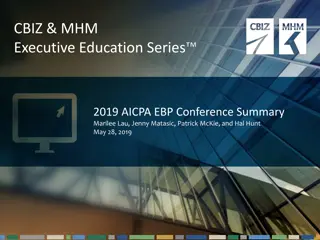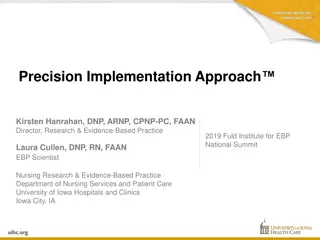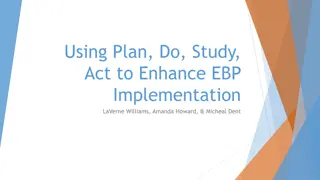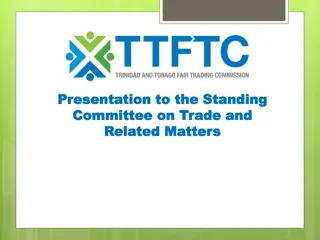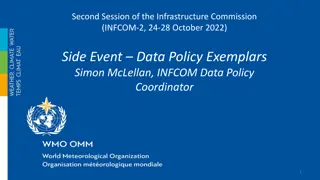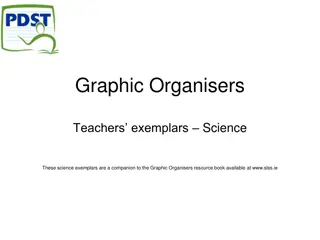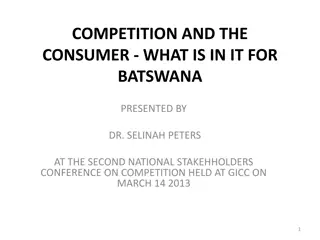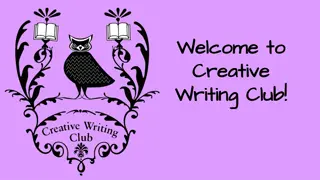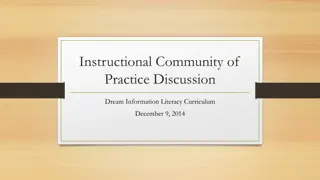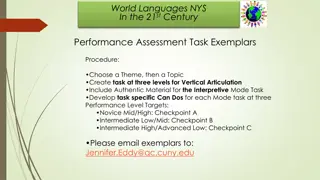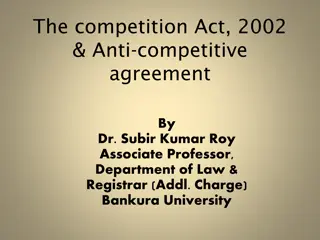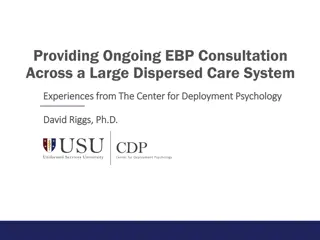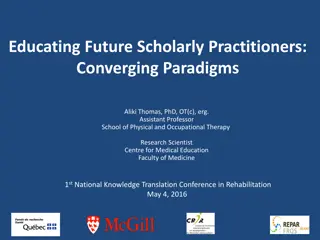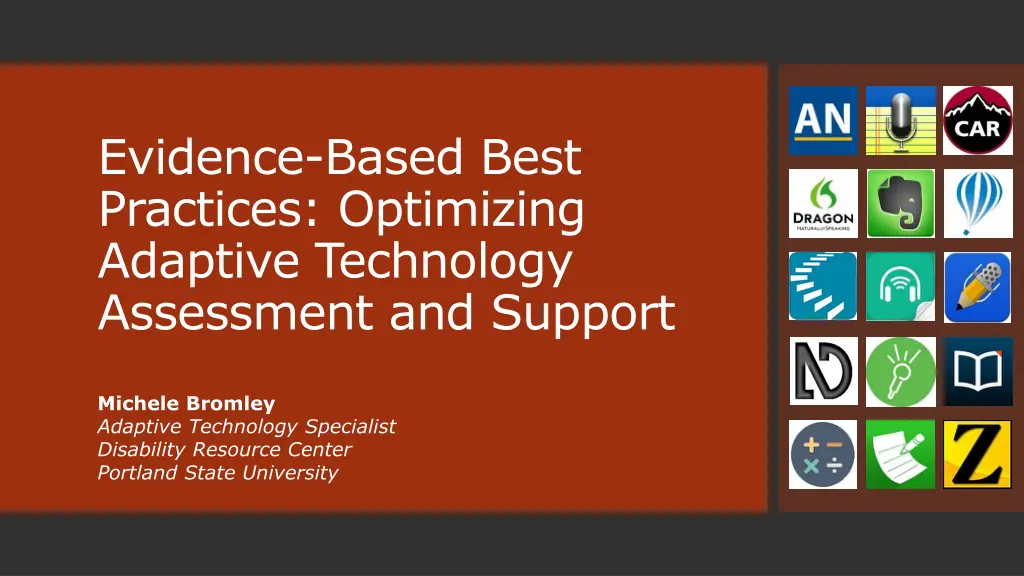
Optimizing Adaptive Technology Assessment and Support at Portland State University
Explore how Portland State University is enhancing support for students with disabilities through a comprehensive Adaptive Technology Needs Assessment, providing access to the right tools and resources to support diverse learning styles effectively.
Download Presentation

Please find below an Image/Link to download the presentation.
The content on the website is provided AS IS for your information and personal use only. It may not be sold, licensed, or shared on other websites without obtaining consent from the author. If you encounter any issues during the download, it is possible that the publisher has removed the file from their server.
You are allowed to download the files provided on this website for personal or commercial use, subject to the condition that they are used lawfully. All files are the property of their respective owners.
The content on the website is provided AS IS for your information and personal use only. It may not be sold, licensed, or shared on other websites without obtaining consent from the author.
E N D
Presentation Transcript
Evidence-Based Best Practices: Optimizing Adaptive Technology Assessment and Support Michele Bromley Adaptive Technology Specialist Disability Resource Center Portland State University
Who Was Our Target Audience? Portland State University enrolls approximately 21,848 undergraduate and 5,822 graduate students. The Disability Resource Center supports approximately 2,116 students with disabilities. Approximately 1,544 students have note taking and/or alternative formats as an accommodation.
The vast majority of students receiving alternative formats or note taking as an accommodation view themselves as bad readers or note takers. The reality is that everyone processes information differently, using a diverse combination of learning strengths and strategies. Some individuals learn most effectively when processing information visually; others learn best through auditory or kinesthetic methods. Adaptive technology can bridge the gap when materials and processes have been designed without universal or inclusive design in mind. Unfortunately, students don t often have a clear idea of where to find the right tools or how to use them. Most disability services offices do not have the time and resources to meet one-on-one with each student to evaluate and determine which tool will work best. What Was the Primary Issue?
We developed and implemented a comprehensive Adaptive Technology Needs Assessment to determine: 1. The devices and operating systems to which students already have access (either personally or on campus). 2. The level of experience students already have with computer software and mobile applications. 3. The academic areas (reading, writing, note taking, organization, etc.) in which students are struggling. We created and currently maintain a working list of supported and affordable adaptive technologies. We hold weekly adaptive technology workshops that outline how these technologies work and the learning strengths with which they are most compatible. We developed and distribute post-assessments to determine how well these adaptive technologies are working for students and whether or not students have received the information they need. So What Do We Do?
The implementation of the Adaptive Technology Needs Assessment has allowed both students and the disability services office insight into what is needed and why. The numbers we re seeing reflect positive change. So far, this academic year (2018/2019): Approximately 854 students have become eligible for adaptive technology for reading and/or adaptive technology for note taking as an accommodation. Approximately 200 students have taken the Adaptive Technology Needs Assessment. Approximately 100 students have attended adaptive technology workshops for reading, writing, note taking, and organization. Approximately 126 students have stopped by during drop-in hours to ask a question specifically related to adaptive technology. Approximately 92 students have taken the post-assessment surveys for adaptive technology for reading and adaptive technology for note taking. What Was the Outcome?
What Are Our Next Steps? We plan to examine the latest post-assessment data for students receiving support from the disability services office related to adaptive technology and adjust or improve our services accordingly. We plan to record our adaptive technology workshops for reading, writing, note taking, and organization and offer these workshops online/remotely for students who cannot or would prefer not to come into the disability services office in person. We plan to partner with the university s office of information technology in order to make adaptive technology more widely available for students with invisible disabilities who may not be registered with the disability services office.

